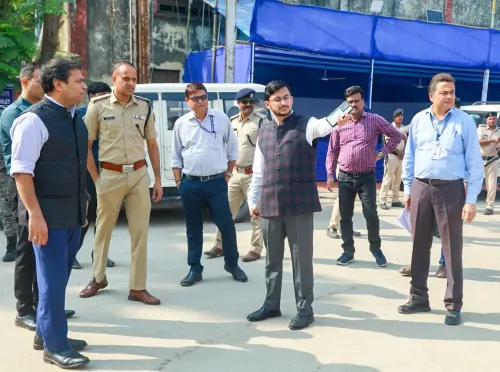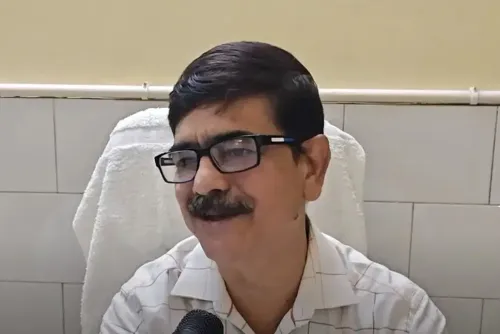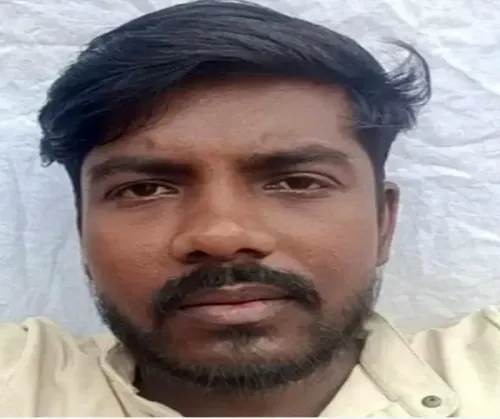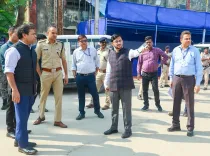How is Himachal CM advocating for the state's rights in Kishau and Renuka hydropower projects?
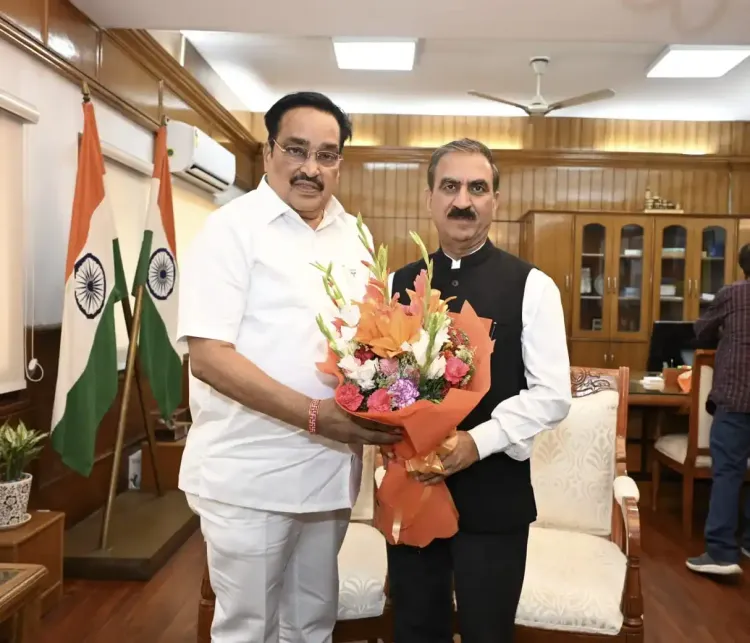
Synopsis
Key Takeaways
- Favorable funding models are essential for state rights in hydropower projects.
- Environmental impacts must be considered in project development.
- Fair compensation for affected states is crucial.
- The Kishau project promises significant irrigation and power generation.
- Collaboration among states is vital for successful implementation.
New Delhi, May 22 (NationPress) Highlighting the necessity for a favorable funding model from the Central Government, Himachal Pradesh's Chief Minister Sukhvinder Sukhu convened a meeting on Thursday with Union Jal Shakti Minister C.R. Patil. He strongly emphasized the importance of safeguarding the state's rights in the multi-faceted Kishau and Renuka Dam hydropower initiatives.
In addition to the Kishau project, the former Union Minister for Water Resources, Nitin Gadkari, had previously signed a memorandum of understanding on August 28, 2018, with Chief Ministers from Uttar Pradesh, Rajasthan, Uttarakhand, Haryana, Delhi, and Himachal Pradesh in New Delhi regarding the development of two other significant projects envisioned in the Upper Yamuna region.
These projects include the ₹3,966.51 crore Lakhwar Multi-Purpose project and the Renukaji Multi-Purpose project.
During the discussion with Minister Patil, Chief Minister Sukhu argued that the financial responsibility for the Kishau project should be shouldered entirely by either the Central Government or the principal beneficiary states—Delhi, Haryana, Uttar Pradesh, and Rajasthan.
The Chief Minister also addressed pivotal matters regarding the Renuka Dam project, advocating for proper attention to the Local Area Development Fund and the free power provisions. He stressed that while hydro projects are vital for national progress, the environmental and social implications must be considered, and affected states should receive fair compensation.
Furthermore, Sukhu requested the prompt release of pending funds under the Jal Jeevan Mission for the state.
In response, Minister Patil assured the Chief Minister of the Central Government's commitment to providing all necessary support and cooperation.
The Kishau project entails constructing a 236-meter high concrete dam across the Tons River, a tributary of the Yamuna in the Dehradun district, which aims to create an irrigation potential of approximately 97,000 hectares, supply 517 MCM of drinking water, and generate 660 MW of electricity.
Conversely, the Renukaji project, designed as a storage initiative on the Giri River—also a tributary of the Yamuna in Himachal Pradesh’s Sirmaur district—plans for a 148-meter high rock-filled dam to deliver 23 cumec of water to Delhi, producing 40 MW of power during peak flow.
According to the 1994 agreement, individual contracts must be established among the six basin states for every water storage initiative in the Upper Yamuna Basin. Upon completing all storage projects in this region (including Lakhwar), the total advantages in terms of additional irrigation potential will amount to 130,856 hectares, water availability for diverse uses will total 1,093.83 MCM, and the power generation capacity will reach 1,060 MW.

